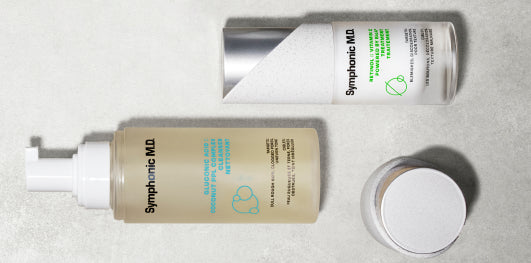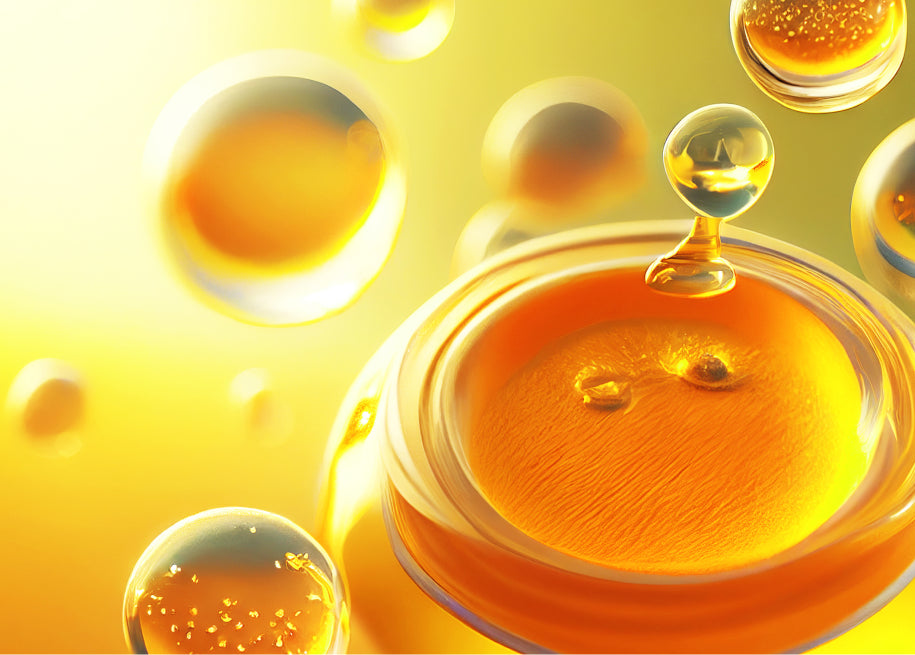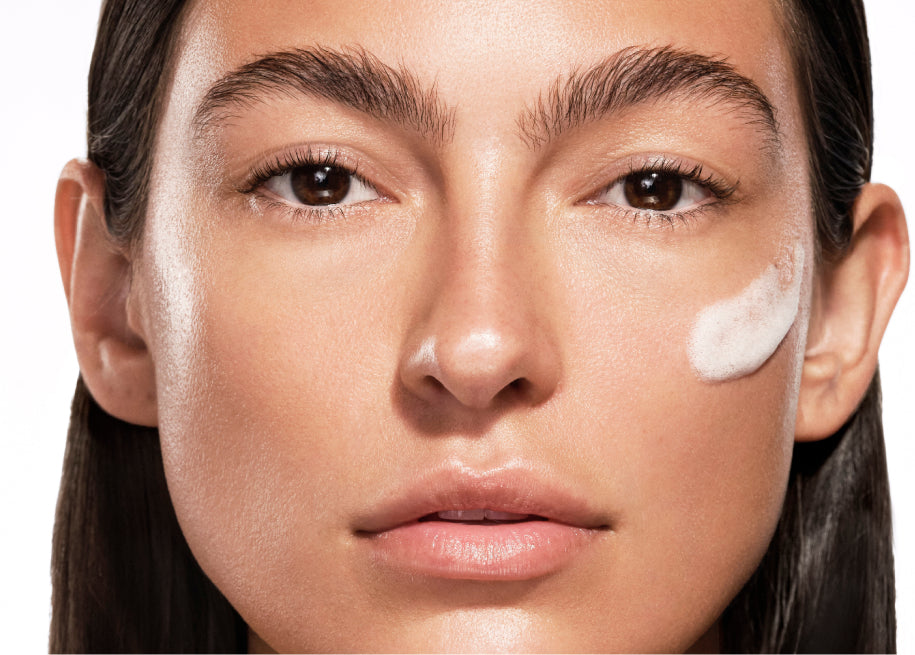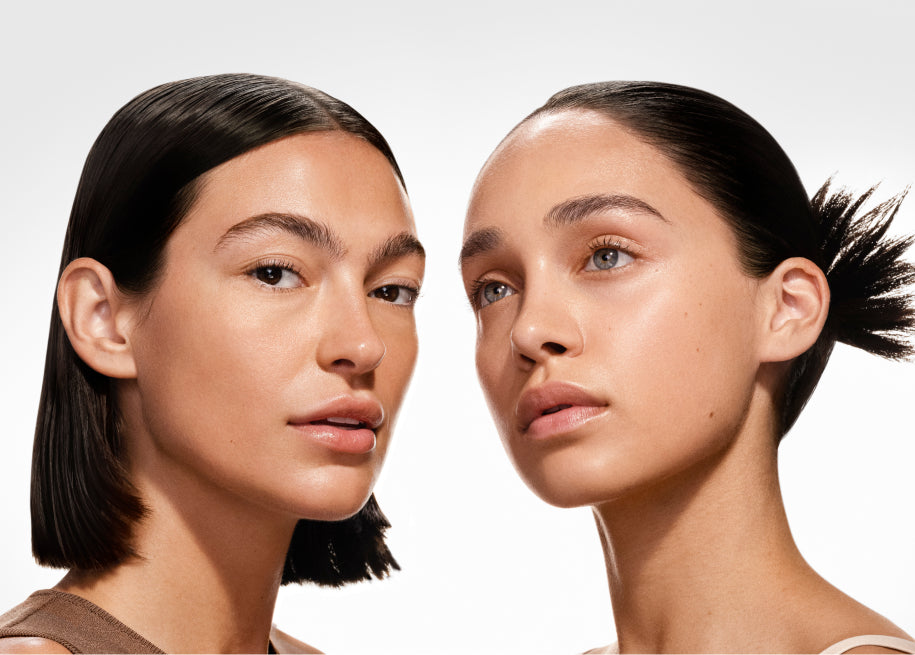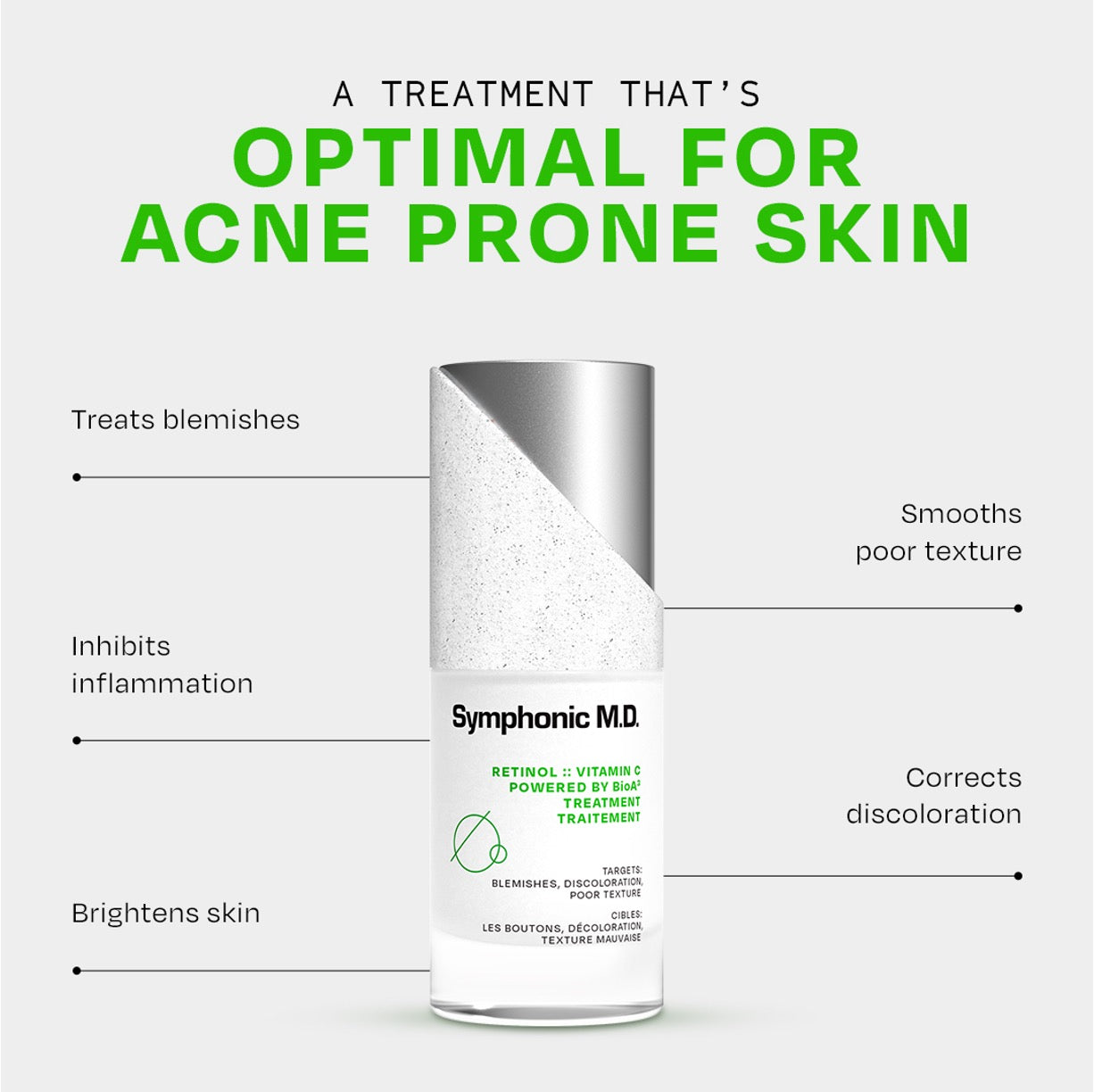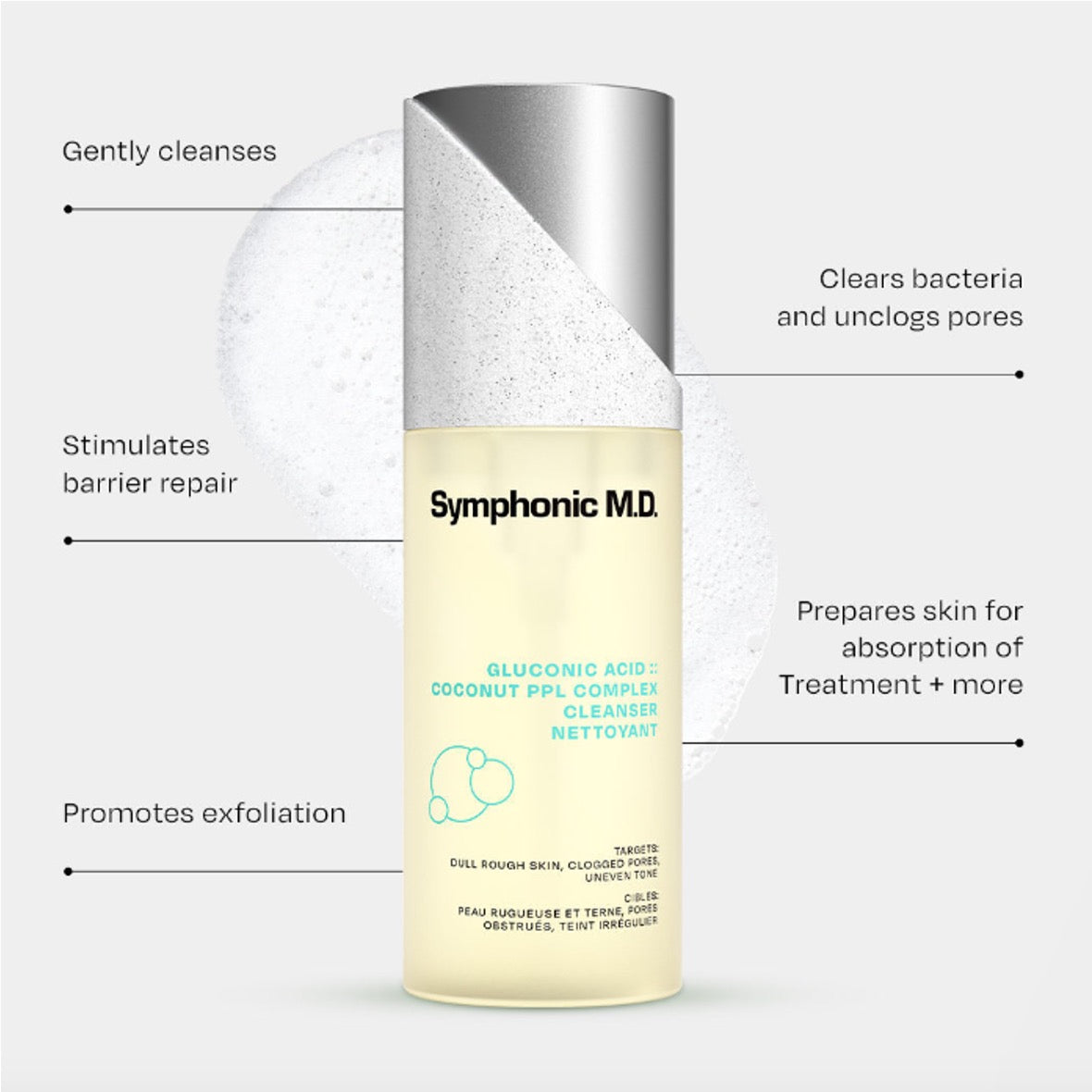Your skin is dry, flaky and dusty. But at least you should be safe from breakouts … right?
Dry skin can still be prone to acne, even though breakouts are more common for other skin types. If you're struggling with a combination of dry and acne-prone skin, you'll need a different approach to treatment and prevention compared to other skin types.
Find out the science behind dry skin with acne—plus, how to protect your skin for the future.
Acne and dry skin
When you think of breakouts, most people picture oily skin. The usual recommendations are to exfoliate and cleanse your skin more.
However, if you have dry skin, you can still get breakouts.
You'll also need a different approach to managing acne, because dry skin will respond badly to too much exfoliating or cleansing. Irritated dry skin means even more acne, as dead skin cells build up and clog your pores even more than before.
Before you can break the cycle, you'll need to understand exactly how breakouts happen on dry skin.
Why does dry skin get acne?
Acne isn't just caused by oil building up on the skin. It can be caused by several different factors.
Your skin naturally produces a certain amount of oil, or sebum. When there's too much oil, or it's too thick, it mixes with dead skin cells and blocks pores, triggering a breakout.
So, acne can also be triggered if you have a lot of dead cells building up on the surface of your skin—even if it doesn't seem that oily.
Dry sensitive acne prone skin
Some people have dry skin which is also sensitive. That makes it even harder to find the right skincare products to treat acne.
If you have sensitive skin that's prone to dryness and acne, then you'll need to design your skincare routine carefully. Look for lightweight, soothing products that won't clog pores with residue or cause irritation.

What causes acne on dry skin?
Breakouts happen when the hair follicles in your skin are blocked by oil, dead skin cells, and other debris. Any kind of build-up, such as dirt, bacteria, or make up, can contribute to the blockage.
So, acne can also be triggered if you have a lot of dead cells building up on the surface of your skin—even if it doesn't seem that oily.
Can dry skin cause acne?
If you have dry skin, it's also possible that your skin will produce too much oil, because it's trying to make up for the lack of moisture. Result: your skin's still dry, but now you have acne, too.
Everyone gets acne at some point in their lives, but there are some factors which can make it more likely.
Can acne treatments cause dry skin?
If you have acne-prone dry skin, then regular acne treatments can accidentally make things worse by increasing the amount of dead skin cells. Common active ingredients like benzoyl peroxide, retinol, or salicylic acid can all cause flaky, dry skin as a side-effect.
Dry skin can also make it harder to care for your skin during and after a breakout. You need moisture to keep your skin supple and healthy, but most acne treatments are designed to dry skin out and remove excess oil.
If an acne treatment seems to be making your skin worse, stop using it and consult a dermatologist. It doesn't have to be that way. There are skincare products for dry, acne-prone skin which won't cause irritation or flakiness.
Common active ingredients like benzoyl peroxide, retinol, or salicylic acid can all cause flaky, dry skin as a side-effect.
How to treat acne prone dry skin
As we've seen, acne on dry skin can be triggered by a build-up of dead skin cells. If you're using the wrong products, then these can inadvertently make breakouts worse by drying out your skin even more.
If you have dry skin and you regularly struggle with acne, having a closer look at the ingredients in the products you're using is a great place to start as they might be the cause.
Follow these tips to fix your skincare routine and treat acne on dry skin.
Follow a consistent skincare routine
Even when you've found the right skincare products, it will take time for them to work.
We recommend creating a morning and evening routine for acne-prone skin which you follow every single day. Especially if you have dry skin or sensitive skin, it may need time to adjust to a new routine before you see results.
Avoid overwashing
Following a regular skin routine doesn't mean over-washing! Dry skin already has a lack of natural oils, so you don't want to strip away even more.

If you have acne-prone dry skin, aim to wash your face just once a day. This should be enough to remove irritants and build-up from your skin, without causing any more irritation. Use gentle products that are designed for dry skin, and avoid harsh scrubbing.
Confused about choosing the right skincare product? Debating between a face wash and a cleanser? Dive into our complete guide to facial cleansers: What is a Cleanser & What Does a Face Cleanser Do for Your Skin! Discover what they are, how they work, and the key differences between face washes and cleansers.
Avoid exfoliating
Exfoliation is meant to lift away dead skin cells and dirt—but it can also have a drying, irritating effect.
Avoid any skincare products which contain alpha hydroxy acids (AHAs), such as glycolic acid or lactic acid. These chemical exfoliants could strip away the natural oils that your skin desperately needs.
If you really want to exfoliate, make it an occasional part of your skincare routine: just once every week or two weeks, rather than every day.
Observe and adjust medications
If your acne is severe, then you might try stronger treatments, such as retinoids like adapalene (Differin) or tretinoin (Retin-A).
However, it's a bad idea to use multiple treatments at once. For example, if you're using a retinoid, then you should avoid products which contain other active ingredients like benzoyl peroxide or salicylic acid. Most dermatologists advise against using multiple retinoids at the same time, too.
Protect your skin from the elements
Everyone with dry skin knows that cold winter air and harsh winds can make your skin even drier. Summer can also take a toll on dry skin if you're exposed to sunburn or other sun damage.
Choose skincare products which will protect your skin, such as a non-comedogenic and non-acnegenic sunscreen (that means it won't trigger acne or irritation). Also, make sure to wear protective clothing such as hats in summer to additionally shield your skin from the sun’s drying rays.
Allow your skin some time to adjust
When you start a new acne treatment, you should expect some side-effects while your skin adjusts. For a short while, it might even seem like things are getting worse!
Dryness, peeling, and irritation are all common reactions during the first few weeks of any new acne treatment. However, if the side-effects are particularly bad or last for a long time, you should check in with your dermatologist.
Remember that it can take up to 12 weeks to see the results from treatments such as retinol. Hang in there!
If you plan to use over-the-counter acne products, then look for gentle treatments which are designed for dry skin.
Research oral medications
In some cases, your dermatologist might recommend an oral medication to support your skincare routine. A treatment like spironolactone could help reduce acne without having any drying effect on your skin.
Spironolactone is a medication which can control hormones that influence acne. It works best against hormone-induced acne in female bodies.
Other medications for acne include antibiotics like doxycycline or minocycline, which work by fighting bacteria and reducing inflammation.
Your dermatologist will be able to tell you whether oral medications can help, and which ones you could consider trying.
Skincare products for acne prone skin
Medications, targeted skincare products, and lifestyle changes can all help treat acne when it shows up. But if you have acne-prone dry skin, you should also aim to prevent acne before it happens.
We've collected these tips for a skincare routine that will stop breakouts in their tracks—leaving you free to enjoy soft, clear, and hydrated skin.
Choose the right acne-specific products or prescribed treatments
There's no way around it: acne treatments can make dry skin worse.
If you're using prescription acne medications, let your dermatologist know that your skin is prone to dryness, so they can help you find a treatment that works for you. If you plan to use over-the-counter acne products, then look for gentle treatments which are designed for dry skin.
Use a gentle cleanser
The right cleanser for dry, acne-prone skin has to walk the line between cleansing skin and leaving natural oils in place.
Look for a gentle product which will lift away dirt, bacteria, and excess oil without drying out your skin. Low doses of benzoyl peroxide or salicylic acid can help control acne on dry skin. There's also some evidence that synthetic detergent (syndet) cleansers are better for acne and dry skin than conventional soap.
Our foaming cleanser uses gluconic acid and coconut PPL to exfoliate skin—while strengthening and repairing its natural barriers. It's moisturizing, cleansing, and best of all - it’s safe to use every day.
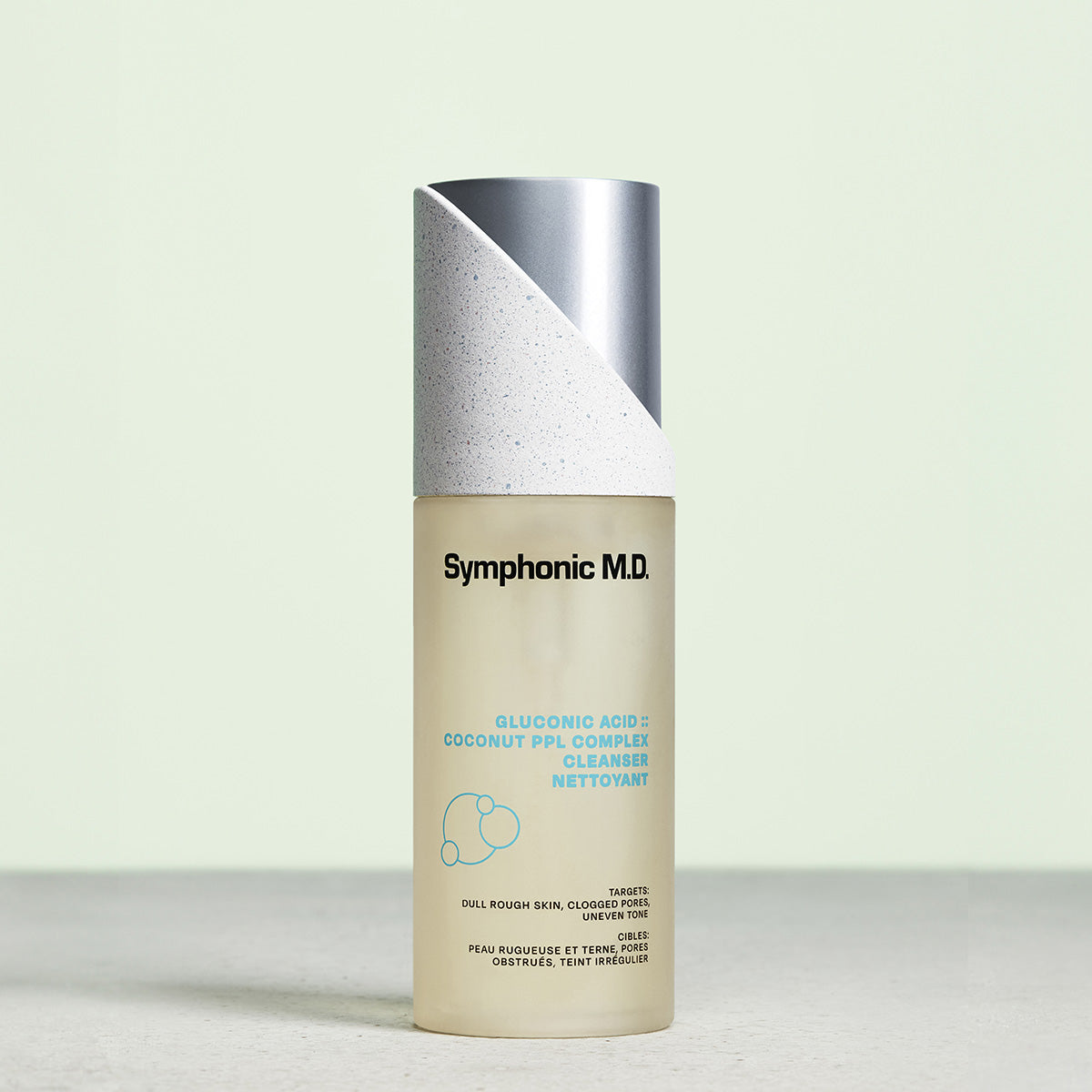
Gluconic Acid :: Coconut PPL Complex
This calming antimicrobial formula targets dull skin, clogged pores, and uneven tone — gently shedding cells while strongly stimulating barrier repair to leave skin soft and purified.
Use a gentle acne treatment specifically for dry skin
If you have dry skin, it's best to avoid the harsher treatments for acne.
Look for skincare products which mention these key terms:
- gentle
- non-drying
- fragrance-free
- alcohol-free
These are all signs that an acne treatment will be safe for dry skin.
There are also specific active ingredients which work well for acne-prone dry skin. We recommend niacinamide, which simultaneously fights acne, reduces dark spots, and moisturizes skin.
Try retinol (in moderation)
When retinol came on the market, it was welcomed as the silver bullet that would end acne. And it's certainly powerful—but if you have dry skin, you should use it with care.
Retinol works against acne by sloughing off dead skin cells. However, it can also be very drying. If you want to try retinol, start with a very small amount every few days, and give your skin time to build up tolerance.
New to retinol and don’t know where to start? Learn everything you need to know about the strengths, dosages, benefits and more in our detailed guide Retinol for Beginners: What is a Good Retinol to Start With?
Try a spot treatment
When breakouts do show up, target them with a localized treatment so that the rest of your skin doesn't get dried out.
Spot treatments use powerful active ingredients, like salicylic acid or benzoyl peroxide, to clear out pimples without affecting the rest of your skin. While you're using them, stay consistent with your normal skincare routine so that you can get back to preventing acne as soon as possible.
Moisturize plenty
It's counter-intuitive, but one of the best ways to prevent acne is by moisturizing. Dry skin can trigger your body to produce even more oil, making acne worse in the long run.
Look for an oil-free, non-comedogenic moisturizer that will replenish your skin without provoking spots. Ideally, it should include broad-spectrum sun protection, since sun damage can make acne worse.
The right moisturizer will complement the other anti-acne products in your skincare routine. It can even help to offset the drying effect of exfoliants and acne treatments.
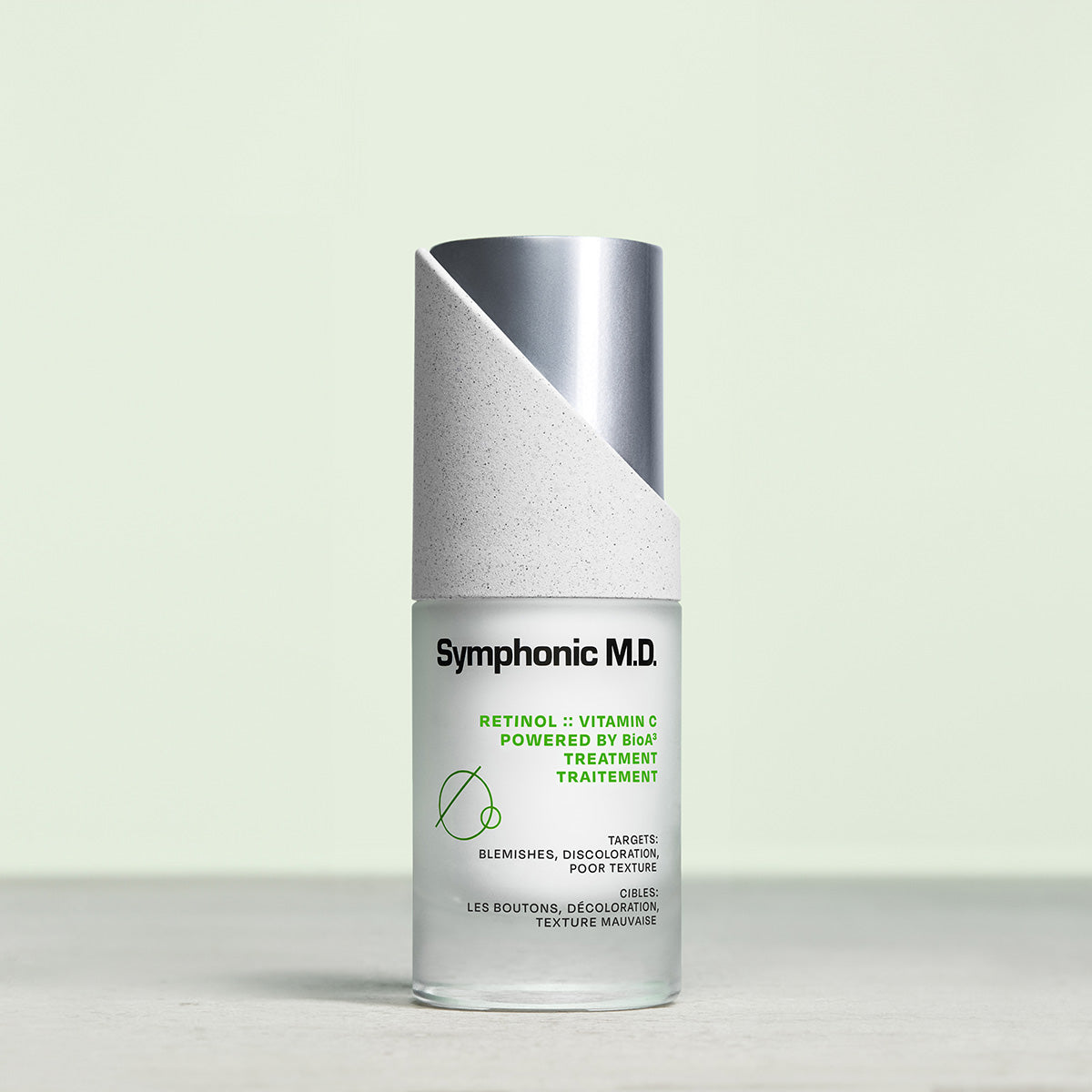
Retinol :: Vitamin C
This anti-inflammatory serum powered by BioA3 targets blemishes, tone, and texture — helping to clear bacteria and smooth skin without clogging pores.
The bottom line
Anyone can get acne—even if you have dry skin. But people with dry skin will need a different approach to treating and preventing acne. Choosing gentle skincare products such as cleansers and moisturizers, following a consistent routine, and carefully using targeted treatments will all help to remove acne from dry skin.

